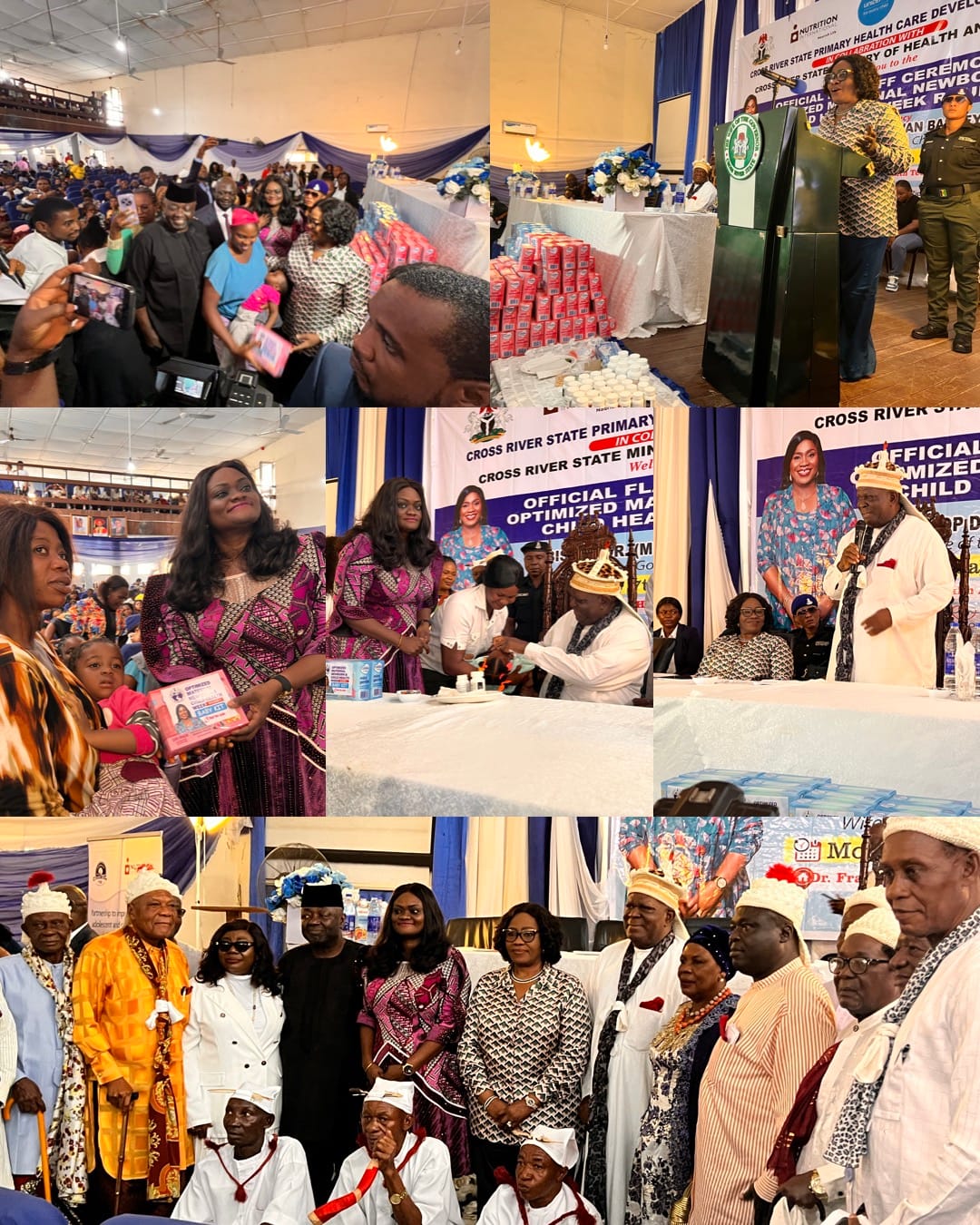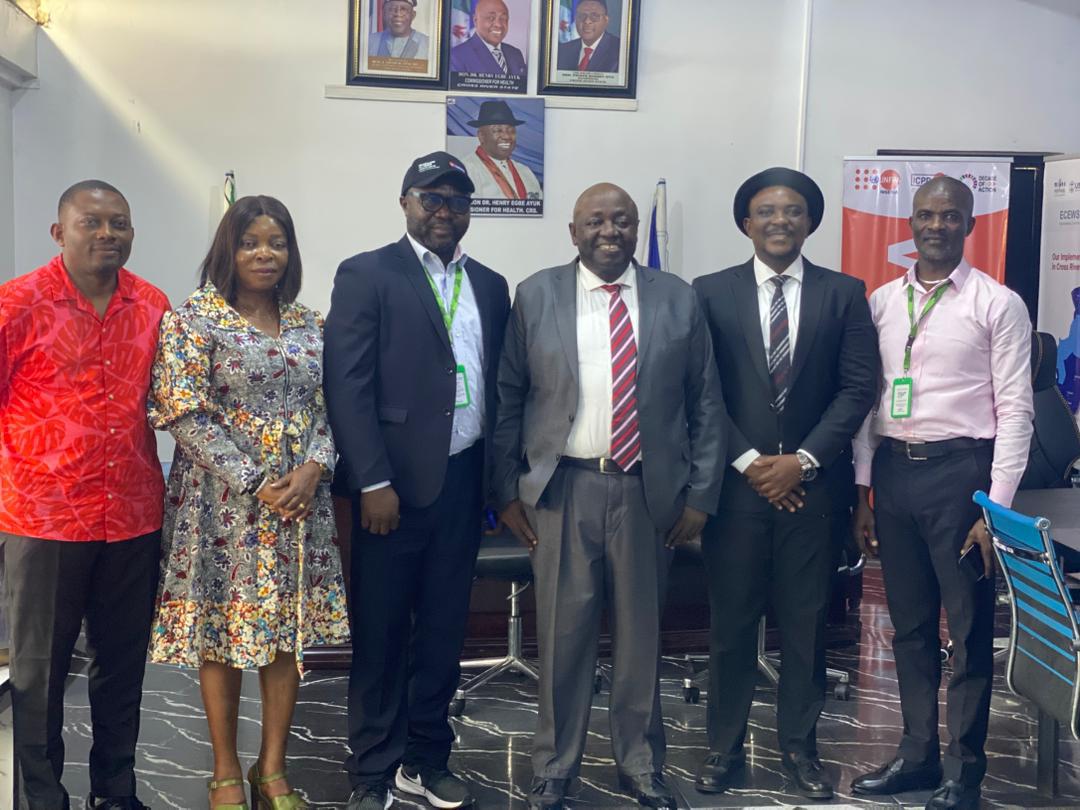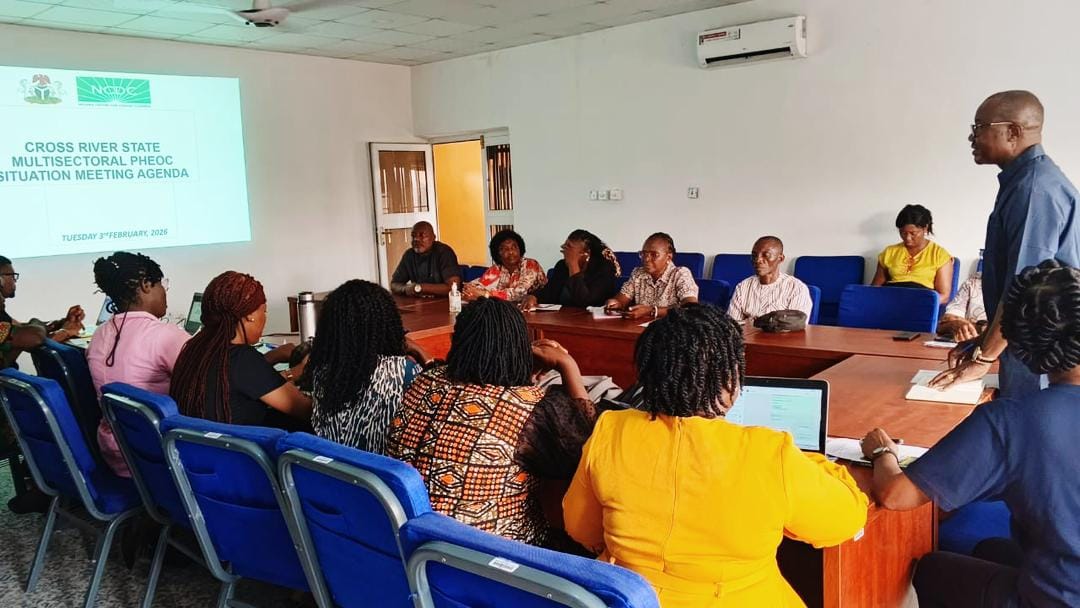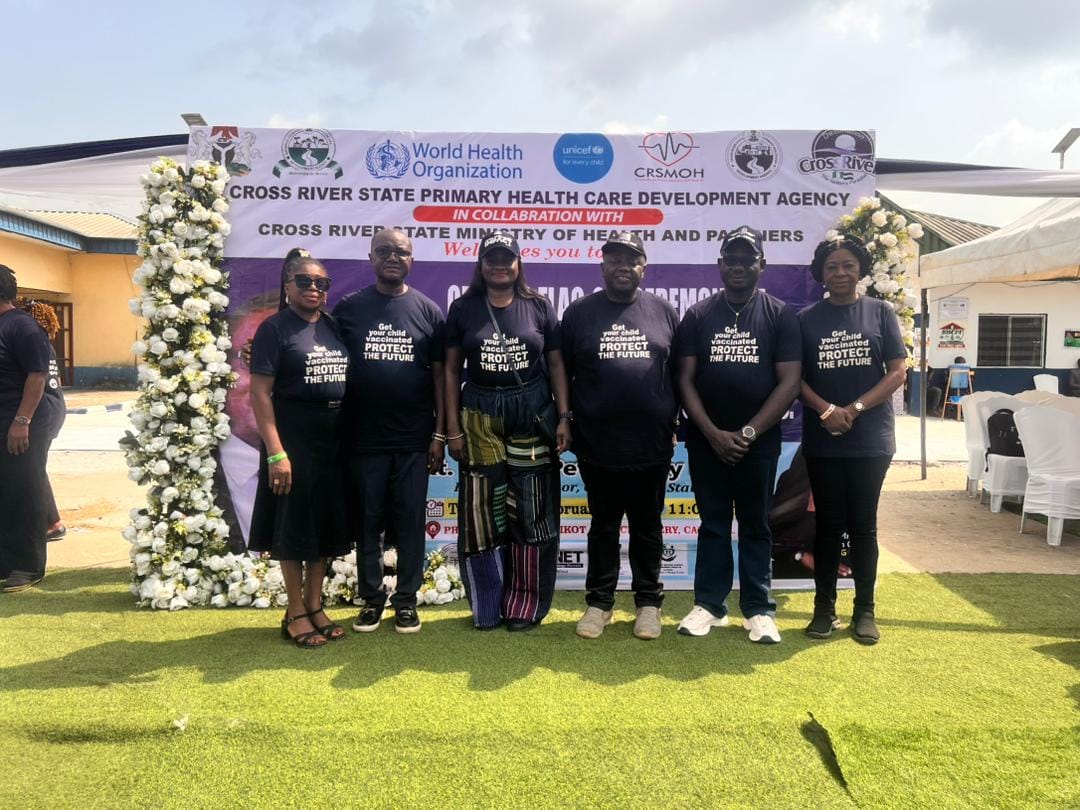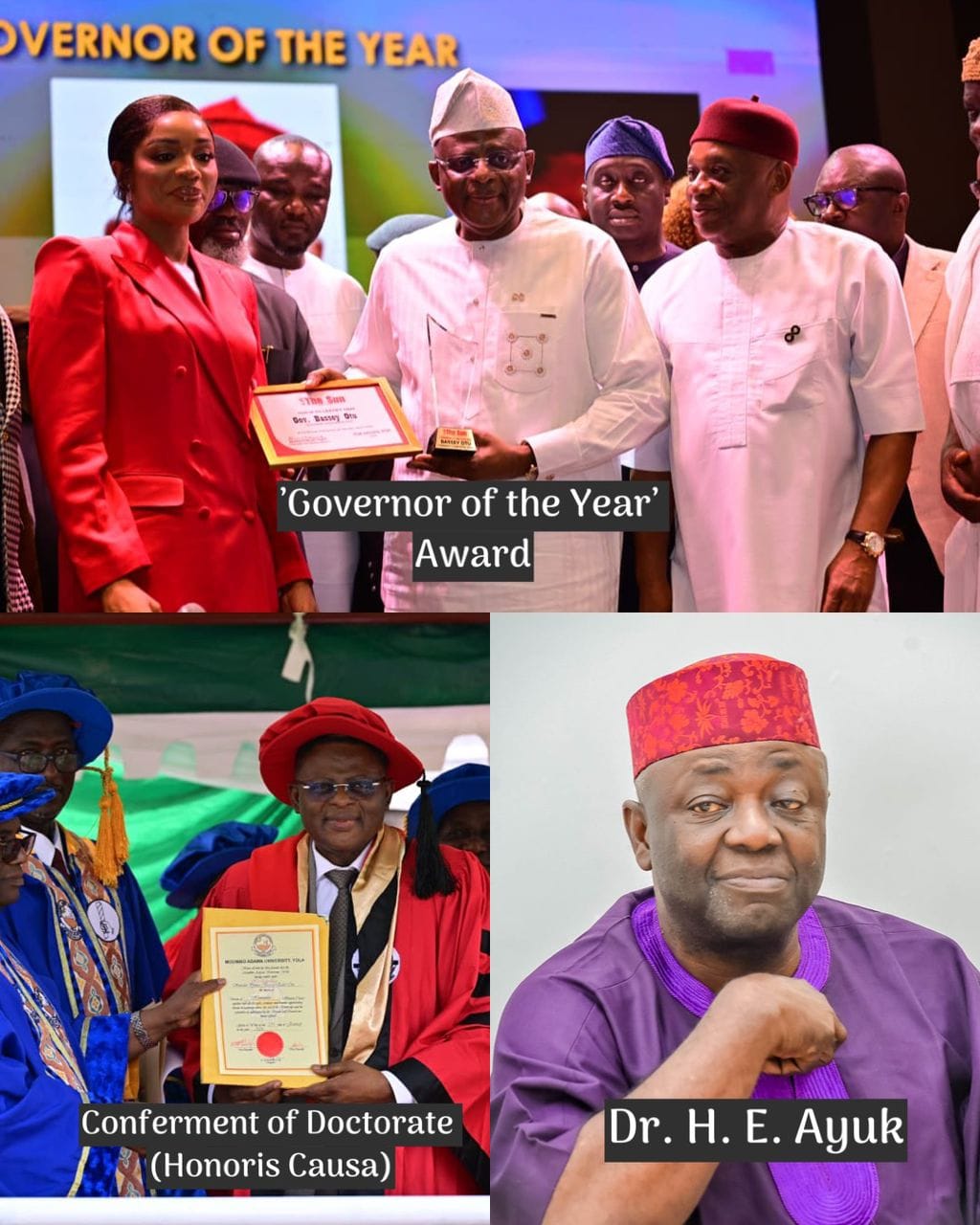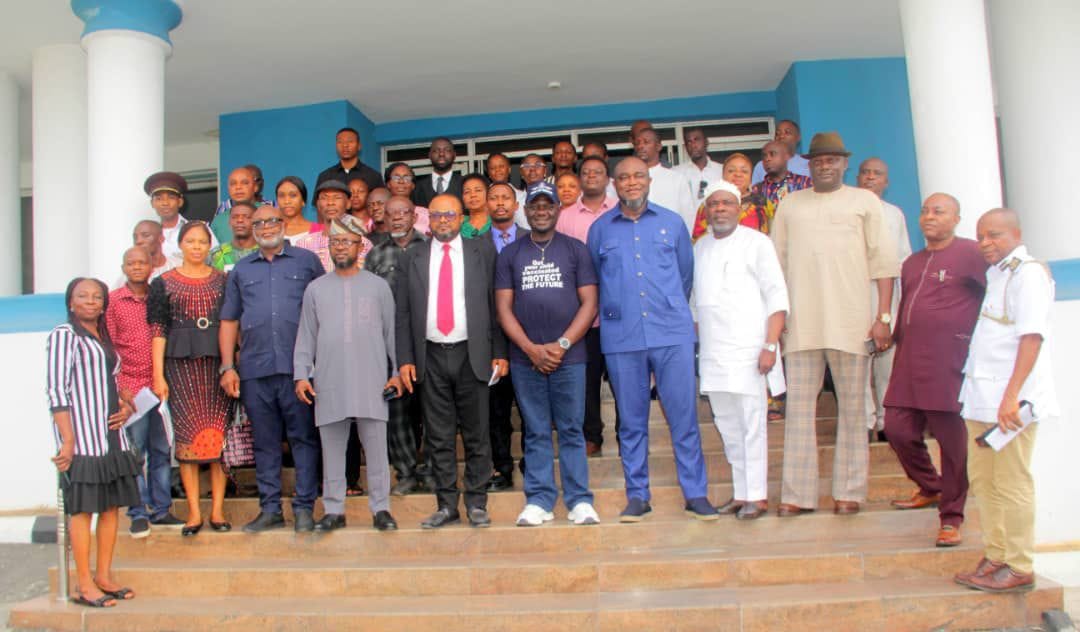The Cross River State Government, under the leadership of Governor Bassey Edet Otu, has launched the first round of the 2025 Maternal, Newborn and Child Health (MNCH) Week, offering a comprehensive package of free health services across all local government areas to improve the survival and wellbeing of women, children, and adolescents.
Flagging off the campaign at the Executive Council Chambers in Calabar, the Wife of the Governor and Nutrition Champion, Bishop Eyoanwan Bassey Otu, emphasized that the MNCH Week is a critical intervention aligned with the 2007 Integrated MNCH Strategy. Held biannually—in June and November—the campaign is designed to deliver a package of cost-effective and essential services aimed at reducing maternal, perinatal, infant and child mortality, promoting reproductive health, and supporting the physical and psychological development of children and adolescents within the family.
The First Lady stated that the services during the week will focus on improving healthy household practices, strengthening the health system, and enhancing the use of health information. She called on communities to support this “high-impact, low-cost, and highly effective intervention.”
Key services being delivered during the week include health education on exclusive breastfeeding, handwashing, and other positive health practices; nutritional assessment of children under five using mid-upper arm circumference (MUAC) tools and weighing scales; vitamin A supplementation for children aged 6–59 months; deworming of children between 12–59 months; routine HPV vaccination for adolescent girls; iron-folic acid and multiple micronutrient supplementation for pregnant women; distribution of insecticide-treated mosquito nets; malaria prevention drugs for pregnant mothers; antenatal services; family planning; HIV testing and counseling; as well as supervision, monitoring and advocacy visits.
Counseling nursing mothers, Bishop Otu encouraged them to participate in health campaigns like MNCH Week and bring along other women in their communities. She assured them that the immunization provided would protect their children from many life-threatening diseases and emphasized that what is good and free often requires patience and should be embraced.
Bishop Eyoanwan Otu concluded with a powerful message: “A healthy child is a nation’s greatest wealth, and a healthy family is the heartbeat of a prosperous society.”
Also speaking, the Chairman of the House Committee on Health, Rt. Hon. Hilary Bisong, said the health of mothers and children is the foundation of Cross River’s future. He commended the Executive for prioritizing the health sector and pledged legislative support to ensure optimal healthcare delivery in the state.
The Commissioner for Health, Dr. Henry Egbe Ayuk, described the First Lady as an integral force in the state’s health reforms. He credited her for thinking outside the box and initiating impactful programs, including a recent scheme that enrolled over 500 elderly people (aged 65 and above) into a free health insurance package for free two years medical services.
Dr. Ayuk emphasized that maternal and child health is about optimizing service delivery and ensuring no population is left out.
The Director General of the Cross River State Primary Health Care Development Agency, Dr. Vivien Mesembe Otu, described the MNCH Week as a declaration of Cross River’s commitment to the health of families. She noted that the initiative targets pregnant women and children aged 0–59 months and includes immunization, vitamin A supplementation, deworming, antenatal care, micronutrient support, and health education. She credited the “People First” agenda of Governor Otu and the consistent support from Bishop Otu as drivers of success in the health sector. She urged health workers and community leaders to ensure that every mother and child, even in the most remote areas, benefits from the programme.
Adding the voice of traditional leadership, the Obong of Calabar, His Eminence Edidem Ekpo Okon Abasi Otu V, acknowledged the First Lady’s consistency in championing health campaigns. He recalled her participation in a past immunization event at Adiabo and commended her renewed push through MNCH Week.
The Obong called on traditional rulers and community leaders to support the campaign by spreading awareness and mobilizing families to health facilities.
Delivering a goodwill message, Blessing Eberechukwu, representative of UNICEF, announced that Nigeria will begin local production of a combined measles and rubella vaccine in February 2026. The campaign will target children aged 9 months to 40 years, and later integrate into routine immunization at 9 months and 15 months. She urged families to prepare for the upcoming campaign and use it to protect children and women from both diseases.
Dr. Minika Okon, President of the Medical Women Association of Nigeria, Cross River chapter, urged mothers to treat their children’s health as a divine gift and responsibility. She advised against delays in seeking healthcare and encouraged mothers to visit the nearest primary healthcare centers or hospitals as soon as any illness appears. She stressed the need for proper hygiene, routine immunization, and the role of caregivers in disease prevention. Dr. Okon also highlighted the need for more awareness on human papillomavirus (HPV) vaccination for girls and urged women to get involved in ensuring their children receive the protection they need.
As the campaign unfolds across the state, stakeholders are united in calling for full participation from families, communities, and healthcare providers, aimed at reducing preventable deaths.
Representatives of different organizations and donor partners, notably, World Health Organization (WHO) all reaffirmed that this round of MNCH Week is facility-based, not house-to-house. He urged caregivers to visit health centers where they would receive not just immunization, but a full package of services including family planning, tetanus vaccinations, nutrition education, and physical examinations for children. He stressed that caregivers should be informed that even after the initial immunization phase at 9 months, additional doses and services are needed at 15 months and beyond. He added that the government would also conduct outreach services in hard-to-reach communities and called on community leaders to assist in spreading the message.


